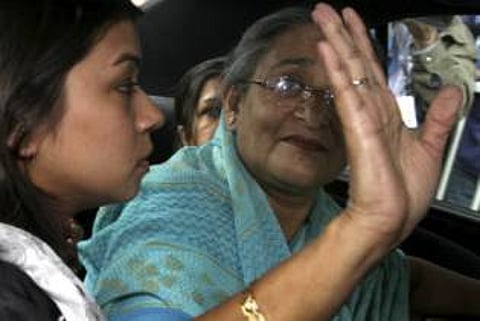Khaki politics in Dhaka
The subterfuge is over. It has now become clear that Bangladesh is under the control of an autocratic military regime. After three months of pretending that it had little to do with the new interim government, set up in early January, the Bangladesh Army's role in derailing an already shaky democratic process is now obvious. In early April, the Chief of Army Staff, Lieutenant-General Moeen U Ahmed, gave a speech on the need to design a new political system, his assertions eerily similar to the arguments for 'Guided Democracy' that Southasians have heard repeatedly from past dictators. There has been a clampdown on political activity and protests, with many leaders of both the Awami League and the Bangladesh Nationalist Party arrested on grounds of corruption. Meanwhile, promises to hold elections 'as soon as possible' seem on their way to being conveniently forgotten.
The most recent move was the concerted attempt to push Begum Khaleda Zia and Sheikh Hasina Wajed into exile. These mutually antagonistic leaders, alternately presiding over the Dhaka durbar for the past 15 years, have certainly not been models of democratic governance. Both engaged in intense political bickering, looted from state coffers, encouraged a culture of street-lumpenism, and constricted the institutional development of Bangladesh's democracy. But the one lesson that we have learned from the royal takeovers in Nepal, the military coups in Pakistan, and even the state of emergency in India, is that neat technocratic solutions, backed by the military baton, are almost always unstable – besides being inherently illiberal.

